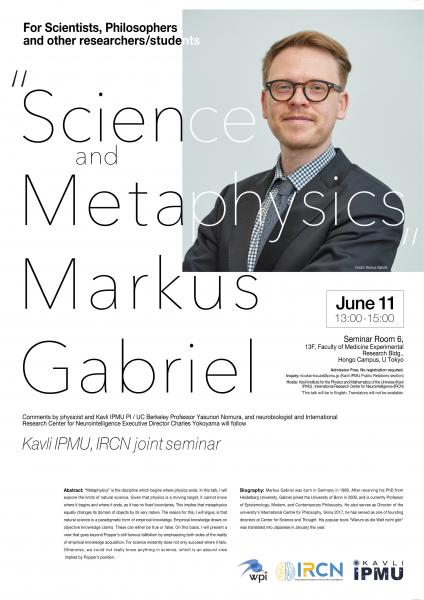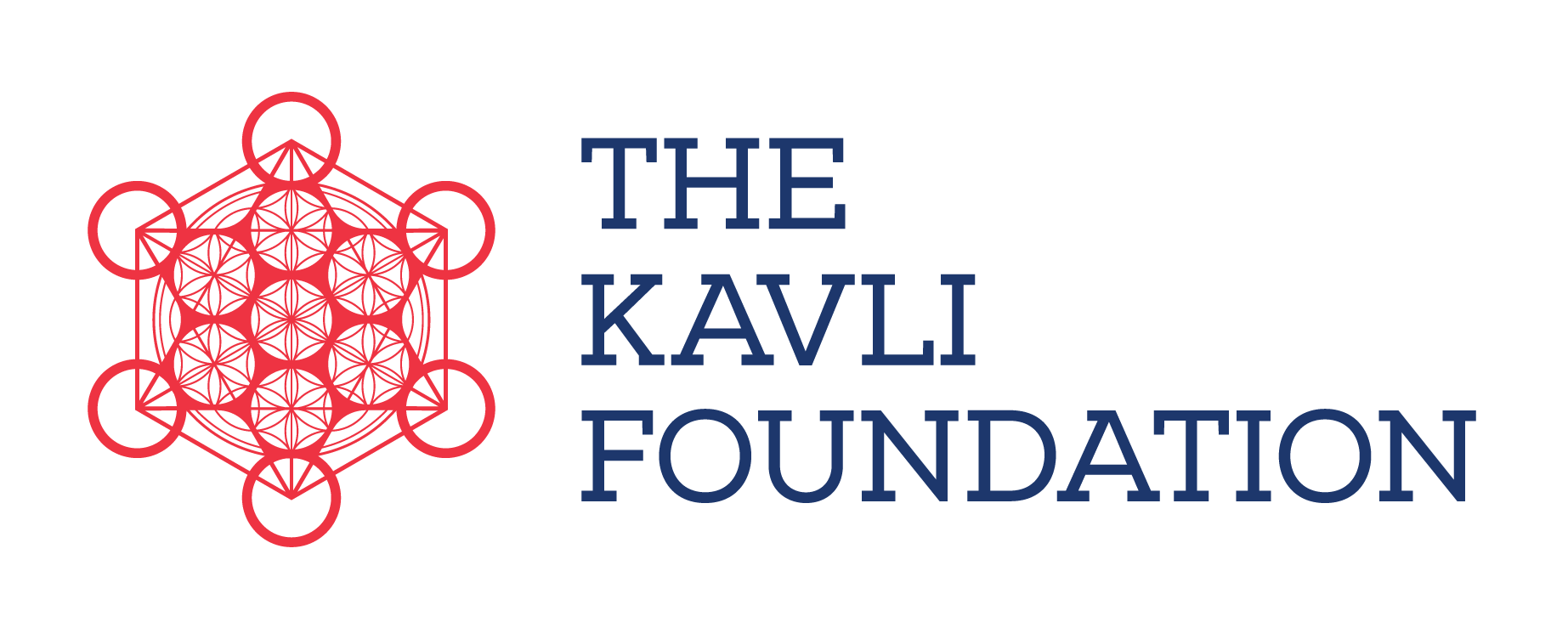May 11, 2018
Kavli Institute for the Physics and Mathematics of the Universe (Kavli IPMU)
 We are happy to announce that Markus Gabriel, described by a social science and humanities publisher as a rising star of German philosophy, will give a talk about "Science and Metaphysics". Comments by physicist and Kavli IPMU PI / UC Berkeley Professor Yasunori Nomura, and neurobiologist and International Research Center for Neurointelligence Executive Director Charles Yokoyama will follow.
We are happy to announce that Markus Gabriel, described by a social science and humanities publisher as a rising star of German philosophy, will give a talk about "Science and Metaphysics". Comments by physicist and Kavli IPMU PI / UC Berkeley Professor Yasunori Nomura, and neurobiologist and International Research Center for Neurointelligence Executive Director Charles Yokoyama will follow.
This talk will be hosted by Kavli Institute for the Physics and Mathematics of the Universe (Kavli IPMU) and International Research Center for Neurointelligence (IRCN). It is primarily intended to provide the opportunity to researchers in the area of science to interchange with other fundamental research areas. Any others researchers and/or students will be warmly welcomed.
> have a look at a report of this event here
Speaker: Markus Gabriel (University of Bonn)
Title: Science and Metaphysics
Date: Mon, June 11, 2018, 13:00-15:00 (doors open at 12:30)
Hosts: Kavli Institute for the Physics and Mathematics of the Universe (Kavli IPMU) , International Research Center for Neurointelligence (IRCN)
Inquiry: Kavli IPMU Public Relations section(mail: koukai-kouza_at_ipmu.jp)
Abstract: “Metaphysics” is the discipline which begins where physics ends. In this talk, I will explore the limits of natural science. Given that physics is a moving target, it cannot know where it begins and where it ends, as it has no fixed boundaries. This implies that metaphysics equally changes its domain of objects by its very nature. The reason for this, I will argue, is that natural science is a paradigmatic form of empirical knowledge. Empirical knowledge draws on objective knowledge claims. These can either be true or false. On this basis, I will present a view that goes beyond Popper’s still famous fallibilism by emphasizing both sides of the reality of empirical knowledge acquisition. For science evidently does not only succeed where it fails. Otherwise, we could not really know anything in science, which is an absurd view implied by Popper’s position.
Biography: Markus Gabriel was born in Germany in 1980. After receiving his PhD from Heidelberg University, Gabriel joined the University of Bonn in 2009, and is currently Professor of Epistemology, Modern, and Contemporary Philosophy. He also serves as Director of the university's International Centre for Philosophy. Since 2017, he has served as one of founding directors at Center for Science and Thought. His popular book "Warum es die Welt nicht gibt" was translated into Japanese in January this year.
Invitation to scientists: "Why do we exist?", "What are Universe's fundamental laws?” - Gabriel believes addressing these questions both from the physics/natural science and from the metaphysical/epistemological direction is the only way to make genuine progress in both philosophy and science. In fact, Gabriel established the ”Center for Science and Thought" with a physicist last year.
Many meaningful scientific questions were once metaphysical and then changed their status as new technological means of empirical testing became available. Gabriel's talk suggests we are now at that point again, and invites us to think how we can conceptualize the borders of scientific knowledge and extend them into regions presently only accessible to metaphysics to confront these questions. Gabriel may also be able to introduce some concrete examples from his center.
We hope many of you will enjoy this rare opportunity to toss your research around.
*This talk will be in English. Translators will not be available.






